Docente de Tiempo Completo de la Facultad de Ciencias Agropecuarias e Investigador del Grupo de Investigación en Ciencia Animal (COL0009761). Es Médico Veterinario y Zootecnista graduado de la Universidad del Tolima – Colombia, con formación de Magister en Ciencias Veterinarias y Doctor en Ciencias Veterinarias de la Universidade Federal de Viçosa – Brasil. Tiene demostrada experiencia investigativa en el campo de la inmunoparasitología y microbiología veterinaria, quien en colaboración con grupos a nivel internacional ha conducido importantes investigaciones dirigidas a desarrollar inmunógenos sintéticos y recombinantes para el diagnóstico y control de parásitos y rickettsias así como moléculas de actividad antimicrobiana. Cuenta con destacada experiencia en el desarrollo de vacunas recombinantes contra garrapatas e inventor de una vacuna contra la garrapata Rhipicephalus (B) microplus que tiene patente internacional. Del mismo modo el Dr. Tafur ha sido colaborador de importantes investigaciones conducentes a la solicitud de patentes para el diagnóstico de la Leishmaniasis en caninos y las infecciones bacterianas que aquejan a la avicultura participando como coautor en los artículos de ambos hallazgos. El Dr. Tafur acredita 10 años de experiencia docente Universitaria, siendo docente de las materias de parasitología, enfermedades parasitarias, inmunología veterinaria, inmunología avanzada, biología molecular, biología celular y molecular, investigación y epistemología de la investigación. También ha dirigido y evaluado trabajos de pregrado y posgrado en los temas de parasitología e inmunología veterinaria y es par evaluador reconocido por Colciencias. En la actualidad el Dr. Tafur se encuentra realizando una investigación que busca obtener nuevos candidatos vacúnales para el control de la garrapata Rhipicephalus sanguineus.
GRUPOS DE INVESTIGACIÓN: CIENCIA ANIMAL
LÍNEAS DE INVESTIGACIÓN: Salud Humana y Animal y Sostenibilidad Ambiental
LINEAS DE TRABAJO: Desarrollo de inmunogenos para el control de garrapatas
PRODUCTOS DESTACADOS
Cattle seroprevalence and risk factors associated with bovine viral diarrhea in the northeastern of Colombia
Fecha de publicación: 29/06/2021
Bovine viral diarrhea (BVD) is one of the most common and economically significant viral infections in cattle. Different risk factors have been associated with viral exposure and transmission, generating endemic regions with different biotype circulations. To find the BVD status in the northeastern region of Colombia, this study aimed to determine the seroprevalence and risk factors associated with the disease in non-vaccinated farms. For this purpose, a two-time point sampling strategy was developed, obtaining serum from 1157 animals housed in 25 farms distributed in 46 townships, thus for antibody detection against nonstructural protein 3 (NS3, p80) of bovine viral diarrhea virus (BVDV) using an indirect ELISA test. For the first time in Colombia, the presence of serological persistent cattle was evaluated in 1047 animals 3 weeks later of first sampling. The information on a standardized questionnaire with closed and dichotomic answers was used to calculate the putative risk factors. The association analysis by univariate and multivariate logistic regression reported odds ratios (OR) with a 95% of confidence interval (C.I). The overall seroprevalence was 65% (95% CI 62.5–72.9%), with variations according to age ranges. The prevalence of persistent serological positive corresponded to 37.7% (95% CI 34.2–41.5). The risk factors found by multivariate analyses were the lease of pastures (OR = 2.071 CI 1.485–3.690), the use of the same needle (OR = 2.249 CI 1.354–3.736), the molasses supplementation (OR = 2.742 CI 1.156–5.807), and the native Creole breed (OR = 1.895 CI 1.416–2.804). The results of this study confirmed the endemism and higher common exposure to BVDV, as well as the presence of serological persistent cattle in Valledupar, Colombia.
Más información ⇨
- « Anterior
- 1
- 2
- 3
- 4
- 5
- …
- 9
- Siguiente »

